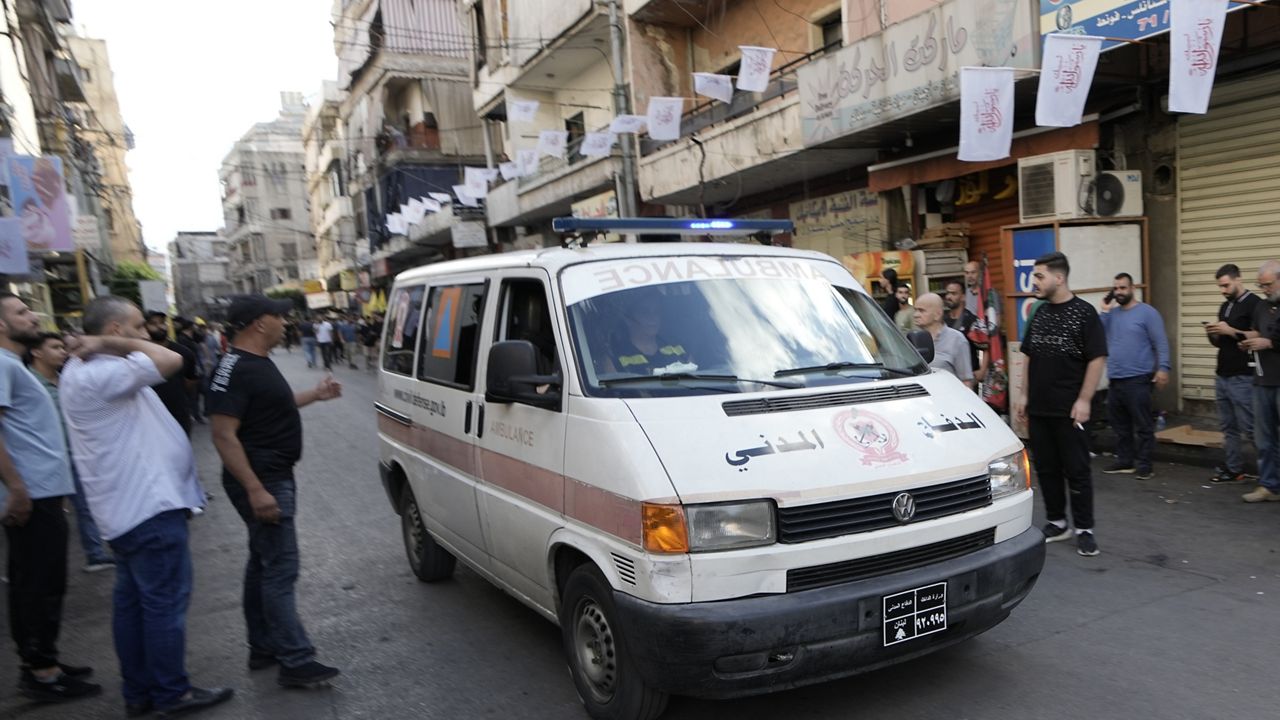Walkie-talkies and solar equipment exploded in Beirut and other parts of Lebanon on Wednesday in an apparent second wave of attacks targeting devices a day after pagers used by Hezbollah blew up, state media and officials for the militant group said.
At least 20 people were killed and more than 450 wounded in the second wave, the Health Ministry said.
The attacks — which were widely believed to be carried out by Israel targeting Hezbollah but have also killed civilians — have hiked fears that the two sides' simmering conflict could escalate into all-out war
Speaking to Israeli troops on Wednesday, Israeli Defense Minister Yoav Gallant said, “We are at the start of a new phase in the war — it requires courage, determination and perseverance.” He made no mention of the explosions of electronic devices but praised the work of Israel’s army and security agencies, saying “the results are very impressive.”
In Wednesday's attacks, several blasts were heard at a funeral in Beirut for three Hezbollah members and a child killed by exploding pagers the day before, according to Associated Press journalists at the scene. An AP photographer in the southern coastal city of Sidon saw a car and a mobile phone shop damaged after devices exploded inside of them. A girl was hurt in the south when a solar energy system blew up, the state news agency reported.
The new blasts hit a country still roiling with confusion and anger after Tuesday’s pager bombings, which appeared to be a complex Israeli attack targeting Hezbollah members that caused civilian casualties, too. Tuesday’s bombings killed at least 12 people, including two children, and wounded some 2,800 others.
The second wave also deepens concern over the potentially indiscriminate casualties caused in the attacks, in which hundreds of blasts went off wherever the holder of the pager happened to be — in homes, cars, at grocery stores and in cafes, often with family or bystanders nearby.
While the pagers were used by Hezbollah members, there was no guarantee who was holding the device at the time of the blast. Also, many of the casualties were not Hezbollah fighters, but members of the group’s extensive civilian operations mainly serving Lebanon’s Shiite community.
At least two health workers were among those killed Tuesday. Doctors, nurses, paramedics, charity workers, teachers and office administrators work for Hezbollah-linked organizations, and an unknown number had pagers.
The U.N. human rights chief, Volker Türk, called for an independent investigation into the mass explosions. “The fear and terror unleashed is profound,” he said in a statement, urging world leaders to step up “in defense of the rights of all people to live in peace and security.”
Iran-backed Hezbollah — Lebanon's strongest armed force — and Israel's military have exchanged fire almost daily since Oct. 8, the day after a deadly Hamas-led assault in southern Israel triggered the war in Gaza. Since then, hundreds have been killed in strikes in Lebanon and dozens in Israel, while tens of thousands on each side of the border have been displaced. Hezbollah said its strikes are in support of its ally, Hamas.
Israeli leaders have issued a series of warnings in recent weeks that they might increase operations against Hezbollah in Lebanon, saying they must put a stop to the exchanges to allow people to return to homes near the border. Israel began moving more troops to its border with Lebanon on Wednesday as a precautionary measure, according to an official with knowledge of the movements who spoke on condition of anonymity because he was not authorized to speak to the media.
In his comments, Gallant said that after months of fighting Hamas in Gaza, “the center of gravity is shifting to the north by diverting resources and forces.”
As Prime Minister Benjamin Netanyahu huddled with top security officials at Israeli military headquarters in Tel Aviv, the country's army chief, Lt. Gen. Herzi Halevi, said plans have been drawn up for additional action against Hezbollah.
Secretary of State Antony Blinken said Wednesday the U.S. is still assessing how the attack could affect efforts to negotiate a cease-fire in the Israel-Hamas.



